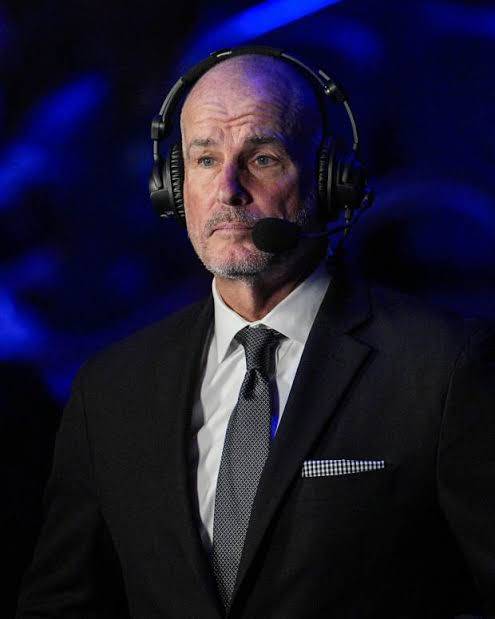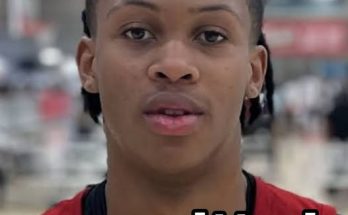When the final horn sounded in the 2025 NCAA Tournament regional semifinal and the Duke Blue Devils walked off the court without a Final Four berth for the second straight year, a deafening silence hovered around Durham. The pain of defeat was evident on every face donning Duke blue. But as emotions swirled among the fan base and pundits began to dissect what went wrong, one voice rose above the noise — and it was one that knows Duke basketball like few others.
Jay Bilas, the former Duke player and longtime ESPN analyst, offered his perspective on Jon Scheyer’s latest tournament exit, and his words were as measured as they were powerful.
“Jon’s really smart, so I think they’re going to look at it for what it is,” Bilas said in a postgame interview. “They didn’t execute when they had to, and you look at, well, how do we do this better in the future?… I think Jon will handle it positively. Crushing blow, obviously, but he’s a competitor.”
Bilas’ comments cut through the surface-level disappointment and pointed toward a deeper narrative — one about learning, resilience, and the difficult transition from the towering legacy of Mike Krzyzewski to the new era under Jon Scheyer.
The Weight of Legacy
When Jon Scheyer took over for Coach K in 2022, he inherited more than just a basketball program. He inherited an empire. The banners, the expectations, the scrutiny — all came crashing down on a 35-year-old coach who had never held a head coaching job before.
And yet, Scheyer has handled the pressure with poise. In his first season, he led Duke to a 27–9 record, an ACC Tournament championship, and a second-round NCAA Tournament appearance. In his second season, expectations rose. The team was more experienced, more talented on paper, and positioned for a deep March run. But once again, they fell short — this time in the Sweet 16 to a rugged and disciplined opponent that made every possession count.
To many, it felt like déjà vu. Another promising season, another early exit. But to Jay Bilas, this wasn’t cause for panic. It was part of the process.
“Crushing blow, obviously,” Bilas said. “But he’s a competitor.”
That single phrase encapsulated the message. This was not about blame or failure. This was about growth.
Execution Over Emotion
Bilas didn’t shy away from the truth. “They didn’t execute when they had to.” It was a brutally honest assessment, and one that coaches and players often grapple with in the aftermath of close losses.
Duke’s offense, which had dazzled at times during the season with spacing, shooting, and pace, stalled in the final minutes of the regional semifinal. Turnovers crept in. Defensive rotations lagged. A couple of key shots rimmed out. In tournament play, the margin for error is razor-thin, and Duke found itself on the wrong side of the blade.
Scheyer, for his part, didn’t deflect responsibility.
“I take full accountability,” he told reporters after the game. “I didn’t put our guys in the best position to win down the stretch. That’s on me.”
That mindset — of ownership, not excuse-making — is exactly what Bilas was pointing to when he said Jon would “handle it positively.”
The Blueprint for Growth
Bilas’ commentary wasn’t just about this one loss. It was about the arc of a young coach’s career.
“Jon’s really smart,” Bilas emphasized. “They’re going to look at it for what it is… and how do we do this better in the future?”
Scheyer has already shown a willingness to adjust. In his first season, he leaned heavily on freshmen. In his second, he prioritized experience, bringing back key veterans and structuring his offense around versatility. He’s recruited well, developed players, and maintained the Duke culture without simply mimicking his predecessor.
Now, the next step is mastering end-game execution in the most pressure-packed moments — something even the best coaches struggle with early in their careers.
“It takes time,” Bilas said on a separate ESPN segment. “You don’t replace Coach K overnight. And frankly, you don’t try to. You build your own foundation.”
The Challenges of Following a Legend
The toughest job in coaching is replacing a legend. Whether it’s Bill Guthridge after Dean Smith, Gene Bartow after John Wooden, or Jon Scheyer after Mike Krzyzewski, the comparisons are inevitable. And usually, they’re unfair.
Krzyzewski coached over 1,500 games, won five national championships, and made 13 Final Fours. Those numbers cast a long shadow, and every misstep by Scheyer is seen through that prism. Yet, Bilas has been vocal about the need to let Scheyer be judged on his own terms.
“Jon’s not trying to be K. He’s being Jon Scheyer,” Bilas said during the ACC Tournament. “And that’s exactly what Duke needs.”
That sense of individuality is crucial. Scheyer has modernized some aspects of the program — from the offense to how Duke uses analytics and sports science. He’s more reserved than Coach K but equally demanding of his players. He connects with recruits in a unique way, often using his own experience as a former Duke star to build trust.
But the results — ultimately — will need to follow. And Scheyer knows it.
The Road Ahead
The loss stings. It always will. But it doesn’t end the story. In fact, it may be the chapter that defines the next.
Duke’s roster next season is expected to be loaded once again. Star freshman Cooper Flagg, widely regarded as one of the best high school prospects in recent memory, is headed to Durham. Other top-10 recruits are in the fold. There’s buzz about a few veterans returning, and the transfer portal could yield more experience.
Scheyer has a chance to build a roster that blends youth and experience — something that has often proven the key to deep NCAA runs.
More importantly, he has now been through the fire. Twice. Each loss, each missed opportunity, is another data point — a lesson for how to better prepare, how to better execute, how to better lead.
And he has the backing of someone who’s been through those wars before.
Jay Bilas, the Guardian Voice
Jay Bilas is more than just a TV analyst. He’s a former Duke player under Coach K, a law school graduate, and someone who has long served as a thoughtful voice in college basketball. When he speaks, people listen — especially in Durham.
His message wasn’t just one of support for Scheyer. It was a challenge.
“They’ll look at what happened. They’ll make changes. Jon will lead. That’s what leaders do.”
For Bilas, this moment isn’t the beginning of the end for Jon Scheyer. It’s the beginning of his real journey — the one where lessons turn into wins, and adversity sharpens resolve.
Trust in the Process
Duke fans, passionate and proud, are used to excellence. They demand it. But excellence isn’t always linear. Sometimes it’s forged in heartbreak. That’s the reality of college basketball. That’s what Jay Bilas was trying to remind everyone of.
Scheyer is smart. He’s tough. He’s competitive. But most of all, he’s growing.
“I’ve always believed Jon has what it takes,” Bilas said. “But now, it’s about experience. He’s learning that every possession in March matters. And the good ones learn. The great ones evolve.”
There’s a reason Bilas didn’t sound alarm bells. He sees the foundation being laid — slowly, steadily, intentionally.
Duke’s future remains bright, not in spite of the loss, but in part because of it. The pain of defeat often lays the groundwork for the most meaningful victories.



